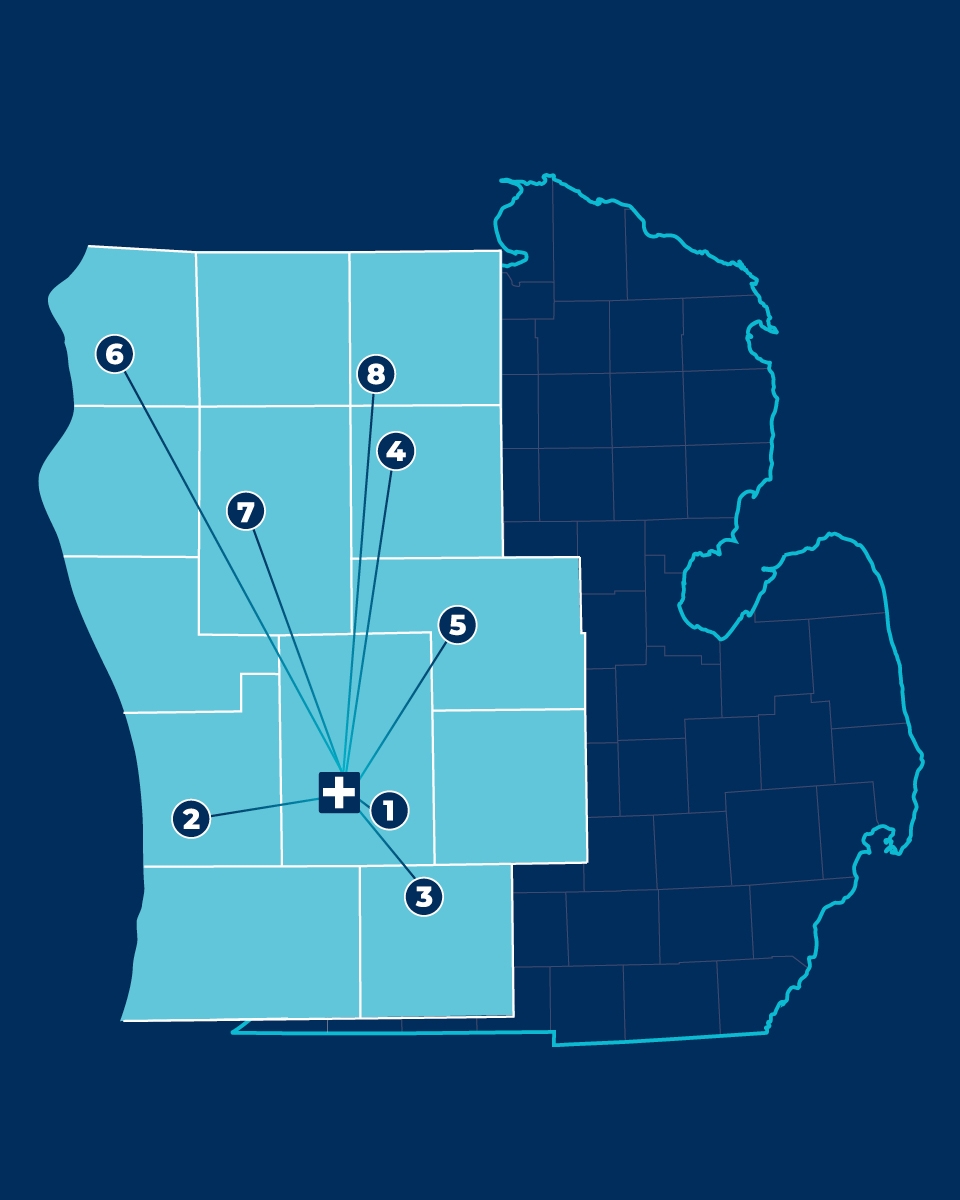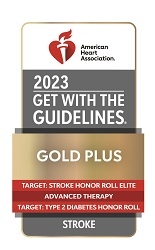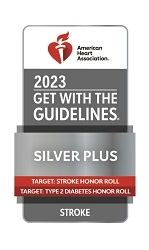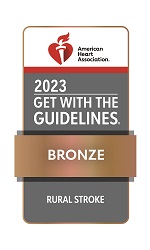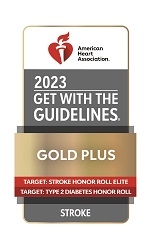Comprehensive stroke care
Stroke can happen to anyone. Know the signs.
Balance: Sudden loss of balance or coordination
Eyes: Sudden trouble seeing out of one or both eyes
Face: Sudden drooping on one side of the face
Arms: Sudden weakness in one arm or leg
Speech: Sudden trouble with speech or understanding
Time: Time to call 911
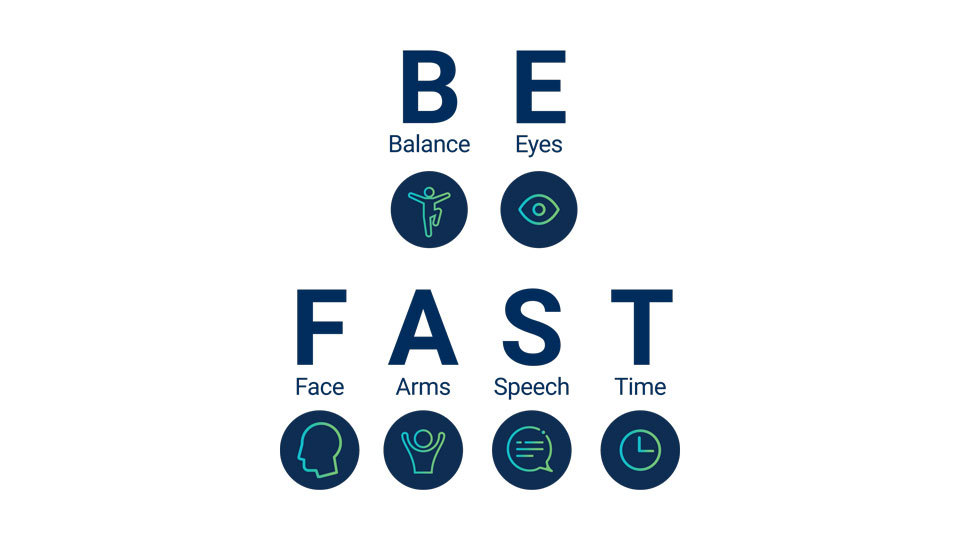
As an accredited and certified, comprehensive stroke program in West Michigan, we are committed to fostering better outcomes for all. Our specialized neurovascular team, one of the largest of its kind in Michigan, has advanced technology and expertise to provide the highest level of health outcomes. The team consists of:
- Fellowship-trained, board-certified vascular neurologists and vascular neurosurgeons
- Neurocritical care specialists
- Neurorehabilitation specialists
From prevention, intervention, recovery, and rehabilitation, we can help.
Dedicated to patient care
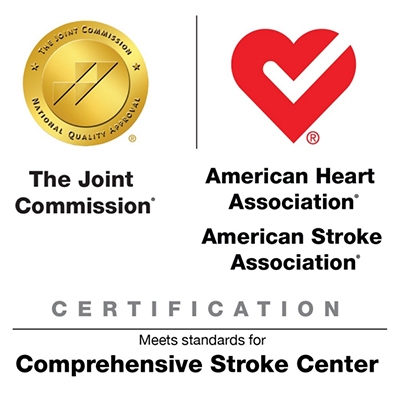
Our flagship hospital in Grand Rapids, Butterworth, is the region's only Comprehensive Stroke Center accredited by The Joint Commission. Additionally, we have regional hospitals accredited as Primary Stroke Centers.
Our passion is to provide high-quality cardiovascular care to our patients. We’re honored to be nationally recognized by the American Heart Association with Get With The Guidelines – Stroke achievement awards for demonstrating commitment to following up-to-date research-based guidelines for the treatment of stroke, ultimately leading to more lives saved, shorter recovery times and fewer readmissions to the hospital.
Contact Our Clinic
For more information or to schedule an appointment

